Australian Spring is the hottest ever
Prolonged drought has driven southern African nations to slaughter iconic animals for food
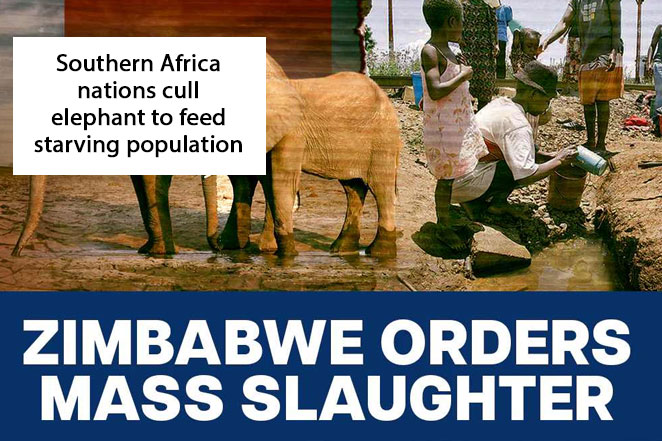
NO GOOD NEWS AS AUTUMN DISASTERS MULTIPLY
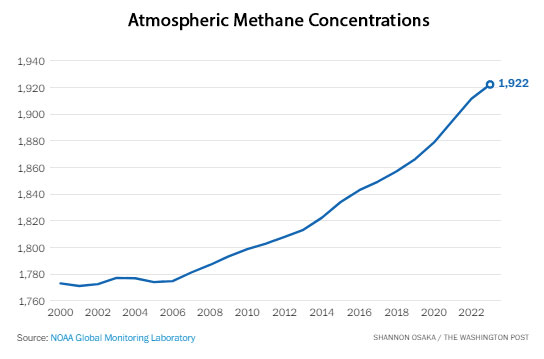
neW methane feedback loop
warming releases more microbes
A disturbing new source of methane (CH4) appears to be creating a new feedback loop, adding to multiple existing sources of this dangerous gas.
Methane concentrations began to spike by 5 or 6 ppb per billion every year from 2007 onward. In 2020, the growth rate nearly doubled.
Simply put, the new methane emitters are the trillions of microbes found in wetlands and landfills. As the earth warms, they produce more methane.
Methane has also increased from oil and gas operations, cattle, landfills and marshes, and most recently (and most alarming) from thawing permafrost in the Arctic.
CH4 is about 80 times more potent than CO2, although it breaks down faster. CO2 remains in the atmosphere for thousands of years.
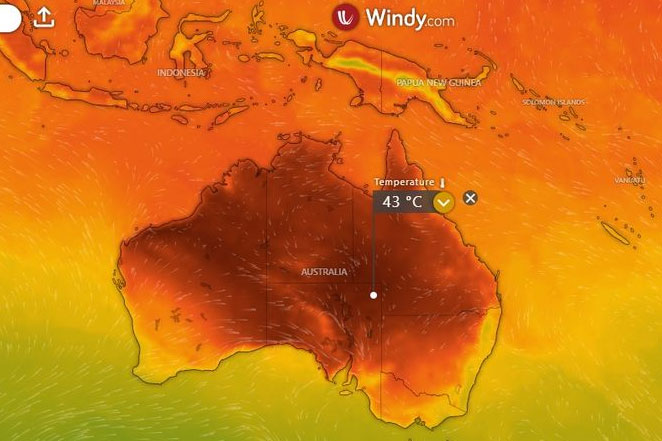
North Australia heat waves startiing early
ONE OF THE EARTHS HOTTEST PLACEs
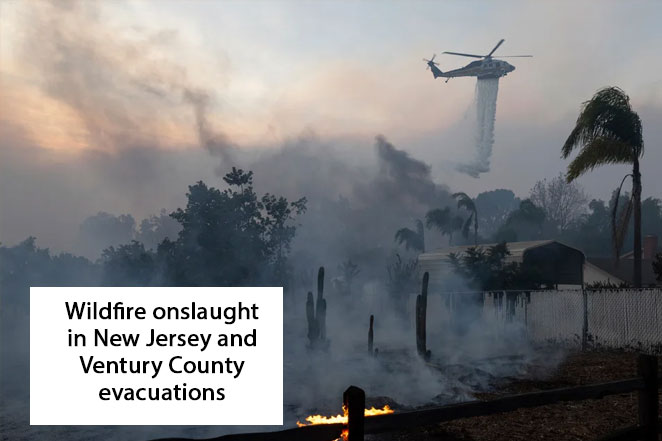
Wildfires AfFlict Ca, NJ, CT & Pennsylvania
“we barely made it out”
Dozens of homes in Ventura County went up in flames as the fast moving Mountain fire engulfed thousands of acres and triggered 14,000 evacuations. Hundreds of properties have been destroyed by the fire with damage to hundreds more.
Meanwhile red flag warnings have been issued for most of New Jersey as a continued extreme drought, combined with high winds, has pushed fire conditions from bad to critical. The Forest Fire Service is already battling at least three sizable wildfires in South Jersey.
Most US states are in a state of mild to severe drought.
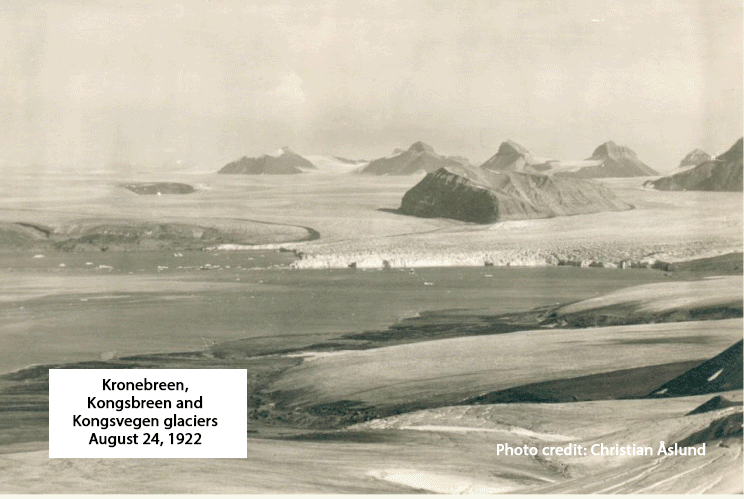
global Glacier collapse photos
Christian Åslund
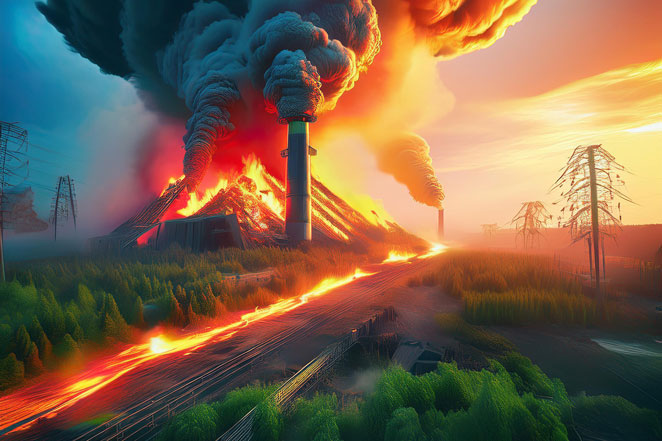
Greenhouse gas hitting new highs
mitigation IS A joke
Greenhouse gas levels continued to climb to new records in 2023, according to a report from the World Meteorological Organization. Carbon dioxide (CO2) is accumulating in the atmosphere faster than than any time during human existence. Among the causes cited are wildfires, fossil fuel and other industrial emissions and a probable reduction in carbon absorption by forests.
Greenhouse gases include CO2, CH4, N2O.
All of these levels are rising real fast.
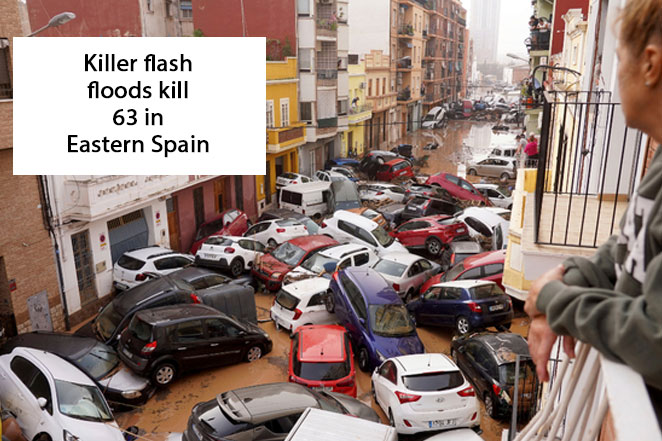
mega Floods In SpaiN kill 250, wreck towns
“We were trapped like rats. Cars and trash containers were flowing down the streets. The water was rising to three meters”

“The World Is Playing With fire”
SECOND SCARY un REPORT
Another world changing report on the global climate disaster is being widely ignored because it’s no fun to read. The United Nations 2024 edition of UNEP’s Emissions Gap Report says our world has a “gargantuan task” ahead of it to avoid “unthinkable” consequences.
That’s why most people decide not to think about them.
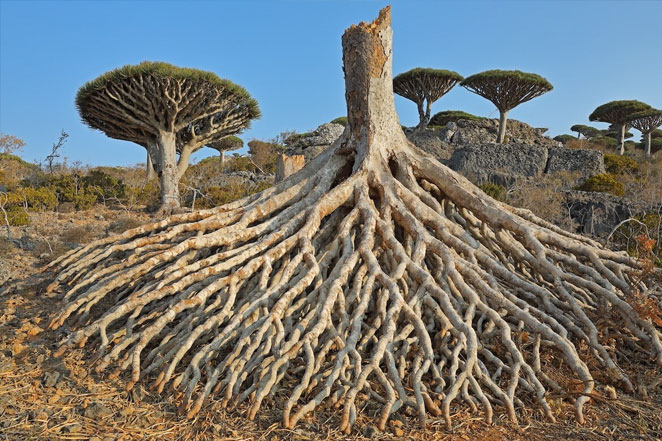
1/3 of Tree Species Disappearing
38% At risk
According to the first Global Tree Assessment, 38 percent of tree species are at risk of extinction.
The assessment, led by Botanical Gardens Conservation International and the International Union for Conservation of Nature (IUCN) Species Survival Commission Global Tree Specialist Group, is an initiative that looks at the conservation status assessments of all Earth’s tree species on the IUCN Red List.
“Today, we are releasing the global assessment of the world’s trees on the IUCN Red List, which shows that more than one in three tree species are threatened with extinction.
.
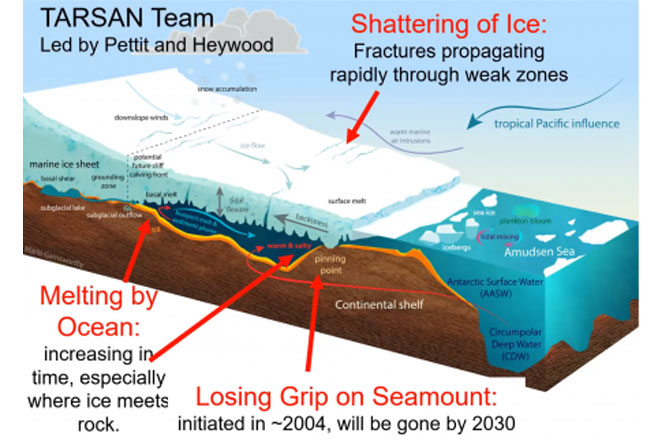
THWAITES GLACIER crash getting worse
losing 50 billlion tons
More bad news on the so called “Doomsday Glacier” as new research shows seawater moving beneath the ice shelf and eating it away from underneath. About the area of Florida, this massive ice form is already shedding 50 billion tons of ice each year, responsible for about 4% of global sea level rise. The water comes into direct contact with a larger amount of the glacier than previously thought.

SEA LEVEL RISE RATE doubles in 10 years
NEW SATELLITE REPORT
The rate of sea level increase continues to climb, as indicated by new satellite measurements published in Nature. From 1993 until the end of 2023, global mean sea level has risen by about 4.3 in.
This represents an increase in yearly rate from ~2.1 mm/year to ~4.5 mm/year in 2023, more than double. This data is consistent with increases from IPCC, which mean a total of about 6.5 in. over the next three decades. If this trajectory of sea level rise continues over the next three decades, sea levels will increase by an additional 169 mm globally, comparable to mid-range sea level projections from the IPCC AR6.

CO2 sequestration is still bullshit
another boondoggle
After two decades of blowing CO2 up our butts in the form of carbon sequestration mythology, the first actual commercial site in the US is reporting its second leak. Archer Daniels Midland’s heavily subsidized carbon dioxide sequestration well sits beneath Lake Decatur, this central Illinois’s primary source of drinking water. It has now reported its second leak.
The facility in central Illinois was the first permitted commercial carbon sequestration operation in the country, and is part of the fossil fuel multibillion dollar gold rush to steal more money pretending to fix the problem they created.
The leaks can lead to toxic metal contamination and lower pH levels, making the water supply undrinkable.
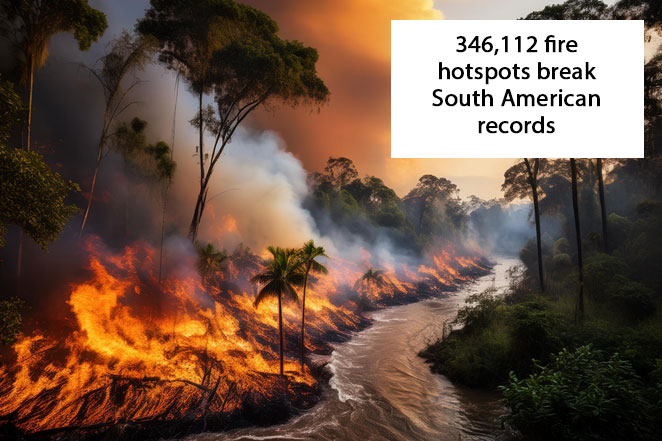
Amazon wildfire carnage worsens
DROUGHT MAY BE ENDING
As rains finally end Brazil’s historic drought, the damage from wildfires shows and area the size of Switzerland destroyed.
“The data is exceptionally alarming, it’s a very abrupt surge,” Ane Alencar, science director at the Amazon Environmental Research Institute.
The surge in destruction comes a year before Belem will host the annual ccliamte conference joke known as COP30.
Deforestation in the Amazon usually begins with chainsaws. Wet, fallen trees are left lying on the ground until they’re dry enough to set afire. They’re not even used for lumber.
.

lETHAL FLOODING IN NEW MEXICO
record rainfall
Roswell, NM recorded a record rainfall of 5.78 in. as the state declared a flood disaster area. Two people died in the sudden deluge.
Local authorities described the flash flooding as “extreme” as the National Guard rescued nearly 300 people from floodwaters.
.

TOXIC METALS INCREASING IN OCEANS
GLOBAL WARMING EFFECTS
A new study points to global heating-related factors combining to increase levels of toxic metals in the planet’s seas. These accumulations are in addition to the damage done by agricultural and industrial pollution.
This uptick is due to melting glaciers, thawing permafrost, and coastal erosion. The trend is particularly true for mercury, which poses a risk to communities dependent on traditional fishing.
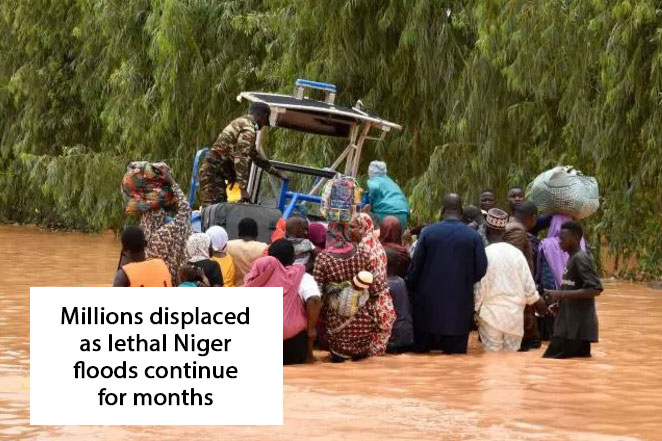
UNRELENTING NIGER FLOODS
MILLION ARE DIsPLACED
Floods caused by intense rains have resulted in 339 deaths and displaced more than 1.1 million people in Niger since June. Described by authorities as unprecedented, the floods have devastated the Sahel nation’s critical resources, cultural sites, and schools.
Over the last few months, heavy rains have flooded every Chad province, burst a Nigerian dam, wrecked infrastructure in the region while killing 1,460.
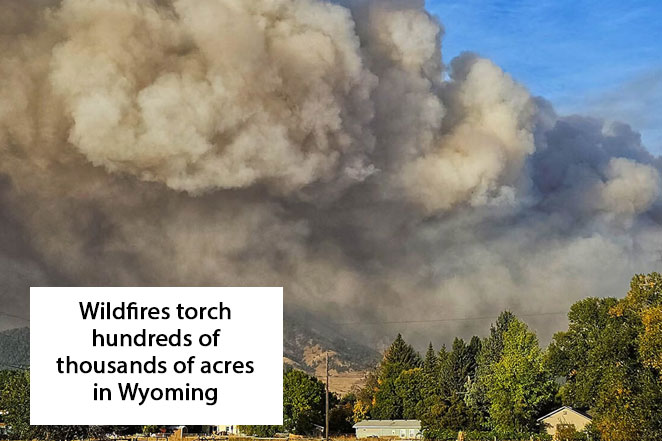
WILDFIRES TORCH WYOMING forests
about 200,000 acres
Two out of control wildfires have burned more than 147,000 acres in Wyoming, adding to the right wing conspiracy stockpile. In this case, the nuts are claiming that the government is burning up land because they need it for rare earth minerals. Surprisingly similar to a line of conspiracy being spread in North Carolina.